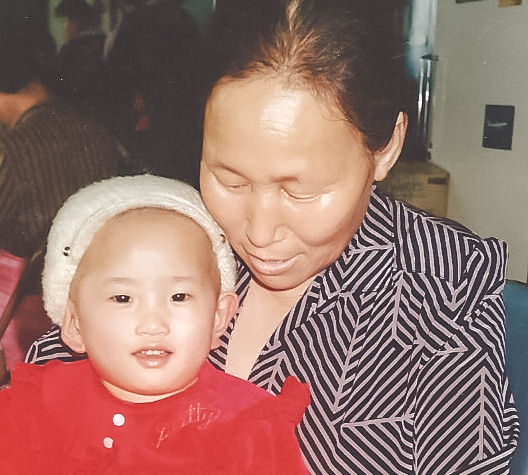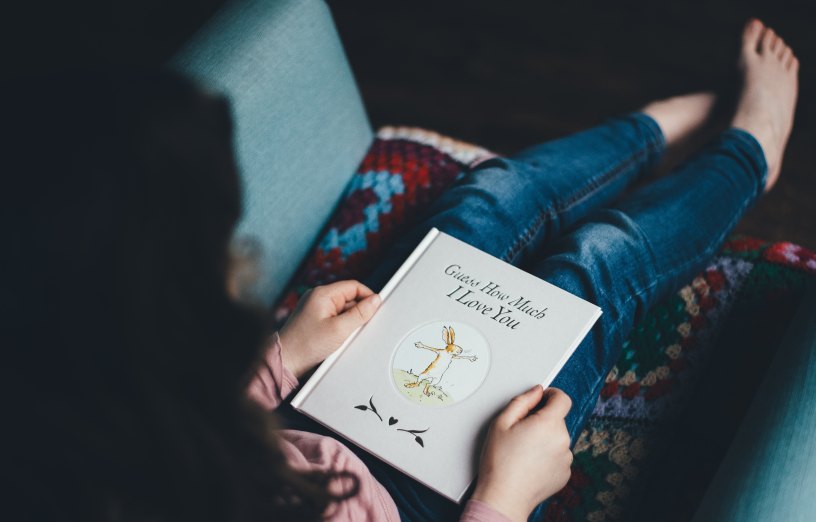Imagine waking up one morning and immediately being met by someone who informs you that you are moving and are leaving that day. You are allowed to take only the items that will fit into one small bag. Nobody is telling you where you are going or why you have to leave. You dress quickly and pack the items that are most meaningful to you. You take one more look around the room—at the items you will have to leave behind, the place that has always been your home, and photos of your loved ones—not knowing if you will ever see them again in this lifetime.
You get into a car and watch out the back window as everything you have ever known disappears as the car drives away. You are taken to the airport. Someone you don’t know is with you—to ensure that you reach your destination safely. You board a plane and, exhausted by the emotions and stress of the day, you eventually fall asleep. When you wake up, you look out the window at a landscape that is entirely unfamiliar to you. You gather your belongings, walk out of the airport, and get into a car as the person who is with you gives the driver the address to your destination.
Following a long drive, the car stops in front of a place the stranger next to you calls your new home. As you exit the car and walk up to the house, you are struck by how harsh the sun is and how cold the air feels. It is strangely quiet and everything smells different.
Someone walks up to the person who is with you. You have never seen a person with their skin color before. As you glance around, you realize that you are surrounded by others who all have similar features, but look nothing like you. They speak in a language you don’t understand. The person you are with introduces you and calls you by a name you don’t know.
You are hungry, and you ask the person who is with you for food. They lead you into the house and prepare a meal for you. You look at the plate in front of you. It doesn’t look like anything you have ever seen before. You taste the food, and it doesn’t taste like anything you have eaten before. You don’t like it, but you force yourself to eat it all, as you don’t want to be rude. Later in the evening, you lay in a bed that doesn’t feel like yours. You glance around a room that is cold and unfamiliar and doesn’t look or feel like home.
You have never felt more frightened and alone.
Your heart aches for your loved ones and for the place you have always called home.
You long for something or someone that feels familiar to you and may bring you comfort.
But, there is nothing.
And, there is no one.
But, this is your life now.
This is your home now.
This name and identity they have given you is the person they want you to be now…
Now, imagine this experience through the eyes of your child.
*****
The preceding vignette is a dramatic interpretation of a fictional experience, but it is important for you to be able to consider what adoption may feel like from your child’s perspective.
Think of a time when you have had to move or start your life over in some way.
How long did it take for your new place to feel like home?
How long did it take for you to adjust to living in a new home with someone you already knew?
How long did it take for you to meet and warm up to your new neighbors or coworkers?
How long did it take for you to acclimate to the weather or to familiarize yourself with your new neighborhood—your new city?
How long did it take for you to feel more comfortable and a little less alone?
How long did it take for your heart to ache just a little less for the friends and family you had to leave behind?
I have been asked on a number of occasions for my opinion on seeking therapy right away for a child who was adopted. My immediate response is that it depends on the child, their trauma history, mental health diagnoses, and a number of additional factors.
I don’t necessarily believe that all children, youth, and adults who have experienced adoption are in need of therapy—nor do I believe that it is something that can and should be forced upon a person—regardless of age.
When I think about this on a personal level, I have to admit that I am sometimes taken aback by the question.
Adoption is not possible without loss, and the loss of one’s birth parents is one of the most significant forms of trauma that a child can experience. With that being said, it is not unnatural or abnormal for a child who has experienced a traumatic loss to feel the need to grieve that loss and to do so in their own time and in their own ways.
I think a majority of us have faced situations that have had a profound impact on our lives. And, regardless of whether those circumstances were filled with joy or sorrow or were perceived as successes or challenges—they often take time to get used to and accept. Sometimes there is forgiveness and growth and healing that needs to happen, and sometimes additional supports like therapy are needed to help us along the way.
I have battled mental health issues pretty much all of my life and received therapeutic supports like therapy, medication, etc. as a teen. None of it was very effective when I was younger, as I was embarrassed and ashamed of having to take meds and see a therapist. As a teen, I was resistant to pretty much anything that made me feel even more different than I already felt.
It wasn’t until I was in my 20s and I was able to make the decision for myself that therapy truly became the support that I needed to help me process and heal. The need for therapy isn’t a one-size-fits-all or cookie cutter type of situation, and therapeutic supports sometimes aren’t helpful until we are in a place where we can trust, open ourselves up to, and work with someone like a therapist to help us on that path to healing.
I wholeheartedly believe in the power of therapy, but it isn’t for everyone. And, that’s okay.
I think the reason why I experience a somewhat visceral reaction to the notion that all children who are adopted are in need of therapy is the insinuation that it is the child and the child’s response to being adopted that is abnormal.
It is important to understand that parents should not default to putting the onus on a child to change in order to help them heal. Oftentimes, the change that is truly needed is for the adults in a child’s life to acknowledge their own blind spots and be open to looking at the big picture in order to figure out how to change and adapt for their child—rather than focusing solely on the behaviors and challenges that they may view as abnormal or unacceptable. Because, more often than not—the struggles and challenges experienced by some children who have been adopted are actually very normal reactions to abnormal situations.
As a parent, if your child is struggling, it is important to stop asking “What is wrong with my child?” and start asking, “What can I do to change my responses to my child and to these situations, and how can I create an environment for my child that will best support their needs?”
Sometimes, the answer may involve therapy for your child or for your family as a whole. But, as a parent, you need to first ask yourself if your attempts to “fix” your child have more to do with your own resistance to introspection, your rigidity, your inability to change your responses to your child’s needs and behaviors, or your inability to change the environment (physical and emotional) in which you are raising your child—or if there is actually something more going on with your child that may require additional services and supports.
*****
Note: I am not a mental health professional, nor am I an expert on mental health issues. My personal and professional experiences form the foundation for many of my opinions, which I do often share on this page and on my blog—but my thoughts and opinions are my own and should never be used in place of the advice of professionals or your own gut instinct as your child’s parent.



